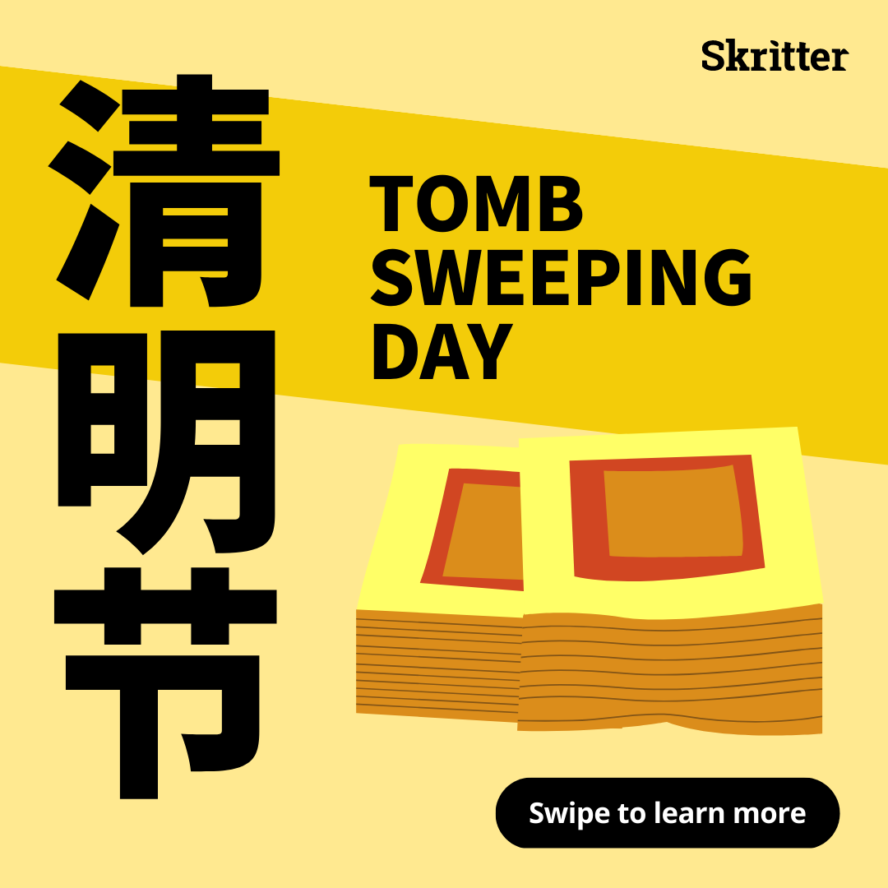Qingming Festival, also known as Tomb Sweeping Day, is a traditional Chinese festival that usually falls on April 4th or 5th of every year. It is the time to remember and honor ancestors by visiting and cleaning their graves, offering food, burning incense, and making paper offerings.
The festival has a long history and originated from the 寒食节/寒食節 Cold Food Festival during the Spring and Autumn Period (770–476 BC). Later, during the Tang Dynasty (618–907 AD), it was combined with the ancestral worship ceremony and became the Qingming Festival. In addition to tomb sweeping, people also participate in other activities during Qingming Festival, such as flying kites, planting trees, and spring outings. These activities are meant to celebrate the arrival of spring and promote harmony between humans and nature.
Common Qingming Festival food such as 润饼/潤餅 rùnbǐng and various types of rice cake, were originally created because people in the past would return home after tomb sweeping in the evening when it was too dark to make a fire and cook a meal. As a result, they mixed ingredients together and made cakes to fill their stomachs.
Example Sentence 1
S: 清明节那天,我会先跟家人去祭祖拜拜,然后去踏青。
T: 清明節那天,我會先跟家人去祭祖拜拜,然後去踏青。
P: Qīngmíng jié nàtiān, wǒ huì xiān gēn jiārén qù jìzǔ bàibai, ránhòu qù yáng míng shān tàqīng.
E: On Qingming Festival day, I will first visit my ancestors’ graves with my family to pay respects, and then go out for a spring outing.

Example Sentence 2
S: 我们家清明节会去灵骨塔扫墓。
T: 我們家清明節會去靈骨塔掃墓。
P: Wǒmen jiā qīngmíng jié huì qù línggǔ tǎ sǎomù.
E: My family will go to the columbarium to sweep the graves on Qingming Festival.

Download Skritter today







